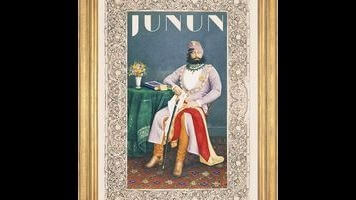It’s a brave new world for film distribution when the new movie by Paul Thomas Anderson can be legally watched online less than 24 hours after its premiere. There’s a reason, however, for that speedy turnover: Junun, which screened last night at the New York Film Festival and is available now on the curated streaming site MUBI, is more of an enthusiastic doodle than another staggering event picture from the writer-director of There Will Be Blood, The Master, and Inherent Vice. Barely a feature at 54 minutes, it’s the closest Anderson has come to just kind of goofing around behind the camera—though, obviously, his version of goofing around is more dynamic than an ambitious effort from the average contemporary.
For his first foray into both documentary and digital filmmaking, Anderson accompanied Jonny Greenwood, who composed the sinister soundtracks for all three of those aforementioned movies, to Mehrangarh Fort in Rajasthan, India. Here, the Radiohead guitarist joined super-producer Nigel Godrich and musicians from all over India in helping Israeli artist Shye Ben Tzur lay down tracks for a forthcoming album. Anderson was there to film the whole recording process, and the result might have seemed like glorified supplemental material were he the kind of filmmaker willing, under any circumstances, to simply plop the camera down and press record. But from its opening shot—a 360-degree pan around the makeshift studio, the musicians arranged in a prayer circle—Junun locates unconventional vantage points from which to capture the creative mojo. PTA and his team of camera operators seem constantly in motion, ducking and weaving among the brass-band ringers and dholak players, attempting always to find a visual correlative for the sonic energy of the room.
Afforded a small crew in a beautiful foreign city, Anderson can’t resist the occasional detour out of the recording space. In a sly, spiritual nod to his Punch Drunk Love, he tags along with one musician on a day trip through the Rajasthan to get his harmonium fixed. Elsewhere, PTA affixes cameras to drones, securing some sweeping overhead coverage of the environment—and its avian population—for his otherwise scrappy direct-cinema project. (Perhaps the access to drones was what convinced this celluloid loyalist to go digital. Or maybe the loose nature of the project just demanded a cheaper alternative.) Anderson provides little context and no talking-head interviews; when his subjects do gab, it’s very offhand, as when one musician casually discusses his polytheistic belief system. Mirroring the seemingly democratic spirit of the album’s creation, Junun affords the session players a bigger spotlight than their internationally acclaimed collaborators: Greenwood barely says a word, spending most of his screen time hunched over a guitar, while Godrich’s most prominent scene concerns his silent attempts to chase a pigeon out of the studio with a mic stand.
What the film doesn’t provide is much sense of logistics, the nuts and bolts of cutting an album. Junun would make an interesting double feature with Ne Change Rien, Pedro Costa’s documentary on French actress-turned-singer Jeanne Balibar; whereas Costa got into the sometimes-tedious grind of making music professionally, Anderson emphasizes the joys of collaboration above all else. (The closest he comes to lingering on a problem or conflict is the brief scene of everyone hustling to make use of a dying battery when the fort suffers a power outage.) Then again, maybe this particular recording session was just as fun and loose and liberating as it looks. Certainly, it produced some terrific music; the film’s title, which it shares with the album whose creation it chronicles, translates to “the madness of love”—a fine way to describe the triumphant racket Tzur orchestrates here. Junun may be a minor work from a major director, but it provides plenty of bounce in the step and candy for the ears. It’s hard to ask much more of a music movie.

